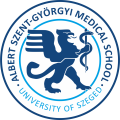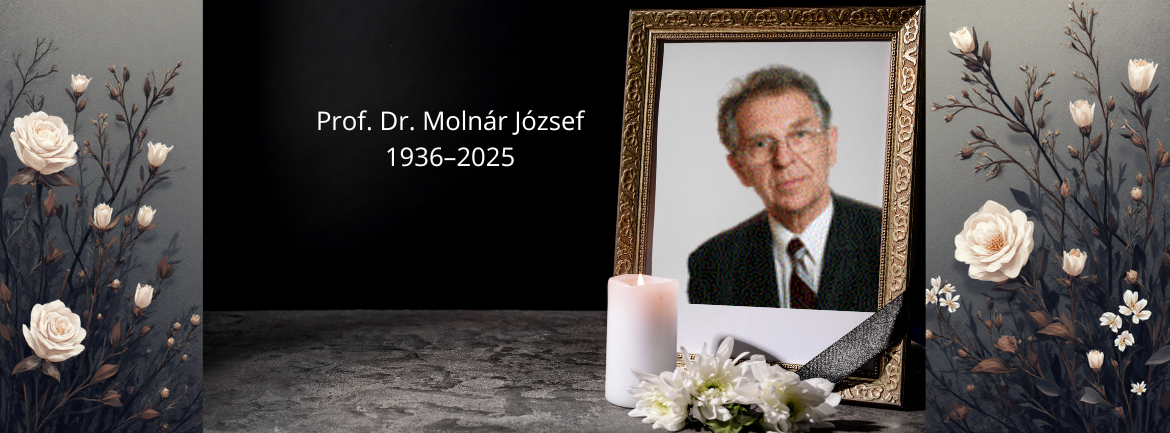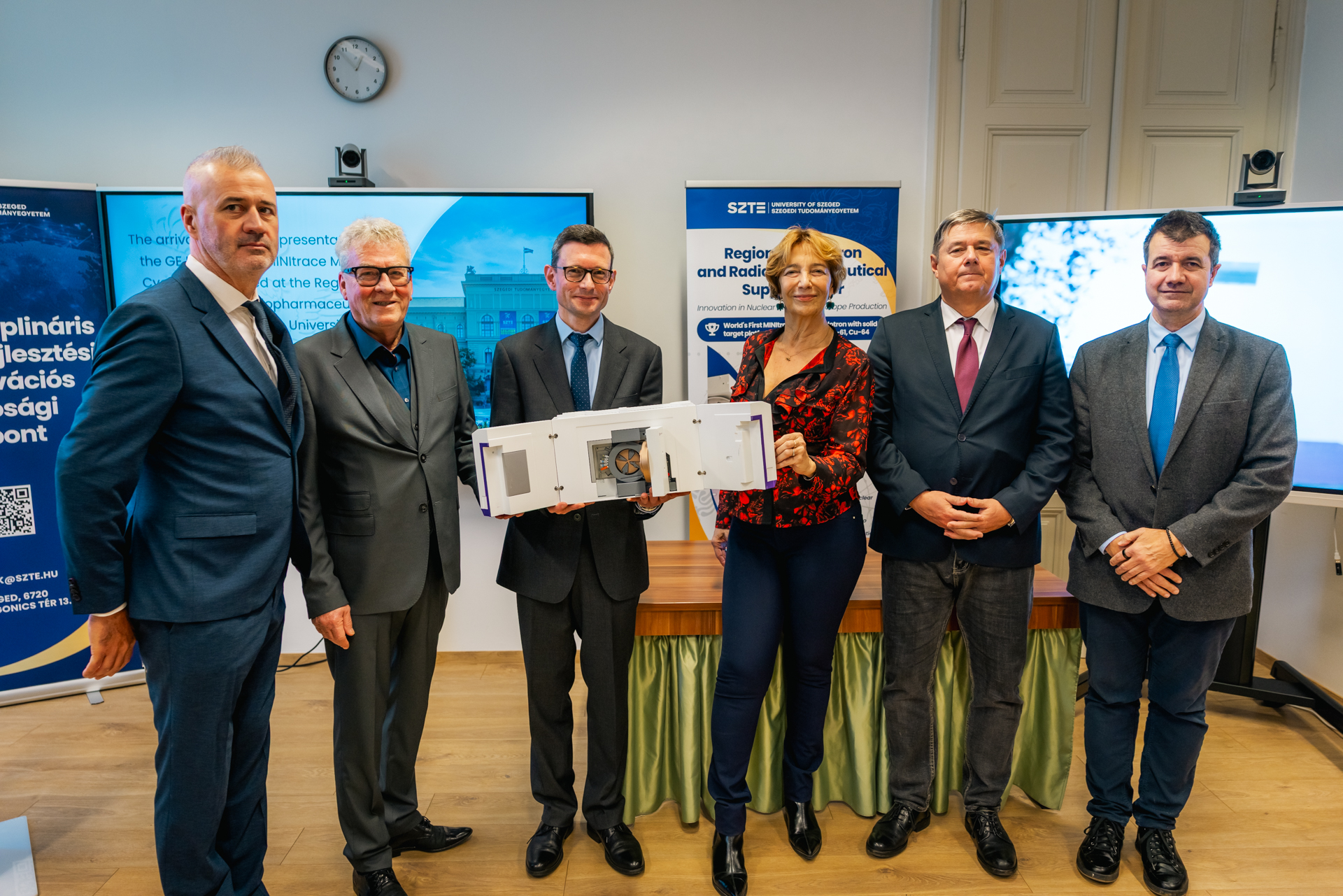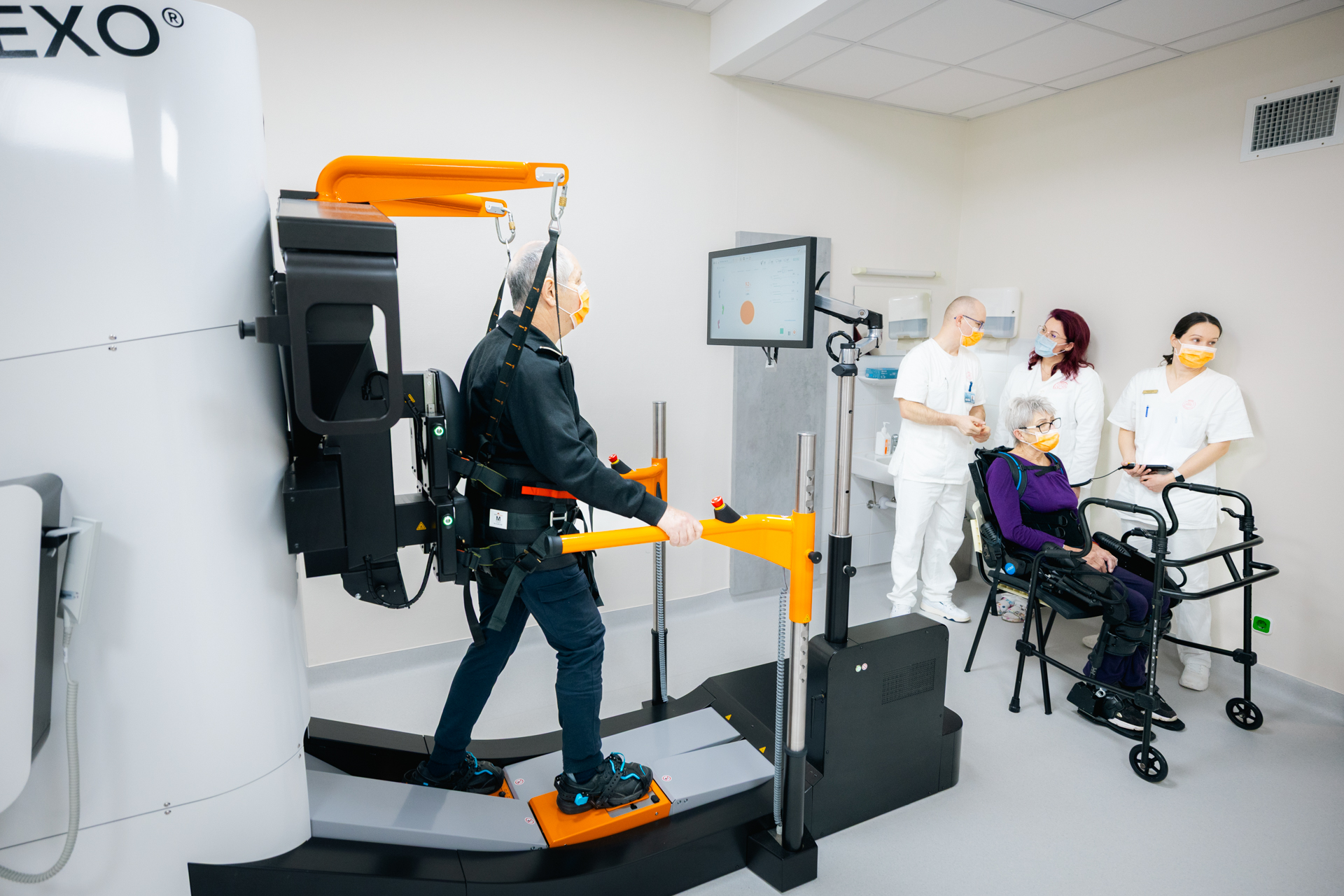University of Szeged
Albert Szent-Györgyi Medical School
Foreign Students' Secretariat
Your Education. Our Mission.

SZTE has built a comprehensive stroke centre unparalleled in Europe over the past decade
Acute stroke is a leading cause of death and the most common cause of long-term disability. Throughout Europe, stroke patients diagnosed and treated in the Szeged region have the best chances for the fullest possible recovery.
The standard of stroke care at the Department of Neurology, Albert Szent-Györgyi Clinical Centre is aptly demonstrated by the fact that it is the only institution in the country that can provide the highest level of comprehensive care from the hyperacute stage to rehabilitation. The centre has achieved gold status and platinum status levels from the European Stroke Organisation (ESO) and the WSO Angels Awards several times. Since 2014, continuous infrastructure improvements, training courses and cooperation with the relevant specialties have ensured that the service provided for stroke patients is now among the best in Europe. The person behind the establishment and operation of the stroke centre is Prof. Dr. Péter Klivényi, head of the Department of Neurology, who was awarded the Knight’s Cross of the Order of Merit of Hungary (civilian division) on 15 March 2023.

’I was presented with the award, but we received it as a team. It is meant for those who supported and financed the investments in infrastructure and equipment, for specialists, nurses, staff of the Hungarian National Ambulance Service, Department of Radiology and Department of Neurosurgery at SZTE and for all those who have been working with us day in and day out for almost a decade to ensure that stroke patients receive the best care as soon as possible. We are constantly looking for ways to advance and improve.

The most important factor in the treatment of stroke is time, as the sooner a patient receives appropriate care, the greater the chance of recovery without permanent damage. Generally speaking, you can respond to cerebral vascular occlusion effectively within the first 4-5 hours, and beyond 24 hours we are virtually helpless, because while the heart can survive without ideal oxygen supply for hours, brain cells die after a few minutes, which is difficult or impossible to overcome,’ Dr. Klivényi said.

impossible to overcome,’ Dr. Klivényi said.
The service offered to patients in Szeged is unparalleled in Europe as it includes the following elements:
- a patient pathway that is unique in the country,
- many patients arrive directly, i.e. without unnecessary transport to other hospitals and departments,
- the infrastructure allows for immediate interventions if necessary,
- the building has a heliport for air ambulance service,
- the emergency department and the stroke centre are in the same building,
- continuous and professional supervision of all activities,
- imaging techniques use Artificial Intelligence softwares to pinpoint the exact location of the vascular occlusion faster,
- other medical services in the region are assisted with immediate specialist advice,
- thanks to the training of the paramedics, patients receive an accurate diagnosis and they are immediately transported to the right place,
- specialised equipment assists with the planning and implementation of therapy,
- neurorehabilitation is provided on an individual basis by a coordinated team, also within the same building (psychologists, speech therapists, occupational therapists, social workers, physiotherapists, doctors).









